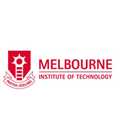Bachelor of Networking (Melbourne)
Bachelor of Networking (Melbourne)
Launch your career in a fast-growing profession Technology is developing at a rapid rate. Businesses increasingly rely on networks to store, manage and transfer their data. With more people working from home, organisations need networks to be both accessible and safe. As a networking professional, companies will turn to you…
Categories
COURSE DESCRIPTION
Launch your career in a fast-growing profession
Technology is developing at a rapid rate. Businesses increasingly rely on networks to store, manage and transfer their data. With more people working from home, organisations need networks to be both accessible and safe. As a networking professional, companies will turn to you to find the solution. That means you’ll always be in demand.
CAREER PATHS
Graduates of the Bachelor of Networking course can find employment in areas of network management, system administration and ICT services delivery and management within a wide range of public and private enterprises. Salaries are typically over $100k.
Roles include:
Network Manager
Network Analyst
Network Design Engineer
Mobile Applications Developer
Help Desk Manager
Chief Information Security Officer
Systems Engineer
Network Analyst
Forensic Computer Analyst
Information Security Analyst
Penetration Tester
Security Architect
IT Security Engineer
Security Systems Administrator
IT Security Consultant
COURSE STRUCTURE
The Bachelor of Networking course is made up of common core units, a major stream or specialism and elective units. To graduate from the degree students must complete 360 credit points overall. Each unit is worth 15 credit points.
This includes 18 core units + 4 major units (BN223, BN309, BN323, and BN324) + 2 elective units.
All Bachelor of Networking degrees at MIT have the same core units. We build the solid foundations students need to design, implement, secure and maintain computer network technologies and communication systems.
The course focuses on the practical and theoretical aspects of computer hardware, software, programming, information systems, network security, database technologies, software engineering and project management.
Students study advanced topics such as wireless network and security, advanced internetworking design, and enterprise cyber security.
Majors available
Software Engineering
Cyber Security
Specialisations available
Cloud Networks
Additional Business electives
COURSE LEARNING OUTCOMES
Graduates of this course will:
Possess a broad body of knowledge to undertake professional work in the area of Networking by:
integrating theoretical and technical knowledge
applying technical expertise in a range of contexts
relating technical experience to the environment
Be able to analyse network technologies and apply them effectively in an organisation by:
reviewing, critically analysing, consolidating and synthesising
Be able to solve problems that require critical analysis and synthesis by:
exercising critical thinking, solving problems with independence
Be able to communicate clearly and effectively with others in a professional setting by:
skills for clear, coherent and independent exposition
demonstrating a broad understanding with depth in some areas
Be capable of working independently or collaborating with others with:
initiative and judgement in planning and problem solving
initiative and judgement in professional practice/scholarship
Demonstrate analysis and evaluation skills in different contexts by:
adapting knowledge and skills in diverse contexts
responsibility and accountability for self-learning
responsibility and accountability for professional practice
REQUIREMENTS
Successful completion of Australian Year 12 or equivalent.
Applicants must be 18 years of age at the commencement date of their chosen course.
English Language Requirement:
IELTS (Academic) – Overall score 6.0 (no band less than 5.5); TOEFL iBT – Overall score 60-78 with minimum scores: Reading 12, Listening 11, Speaking 17, Writing 20; PTE Academic – Overall score 50 with (no score less than 46); Cambridge CAE – Overall 169 (no band less than 162).
EDUCATIONAL INSTITUTION
Established in 1996, MIT has provided degrees in leading industries since its inception. MIT offers undergraduate and postgraduate courses in business, business analytics, networking, cyber security, data analytics and software and telecommunications engineering. MIT’s courses include tactical industry projects and internships. The institute has relationships with industries of all sizes and types, both profit and not-for-profit. MIT trains students in specialised skills that are in demand in the workplace so that graduates enter the workforce feeling confident they can succeed in a competitive environment. Students at MIT are guaranteed hands-on industry experience in every degree. Student care at MIT goes beyond what happens in the classroom. Student at MIT are given the support and taught the skills required to succeed in the real world. MIT’s English classes teach students to use English in a variety of social and personal situations.

